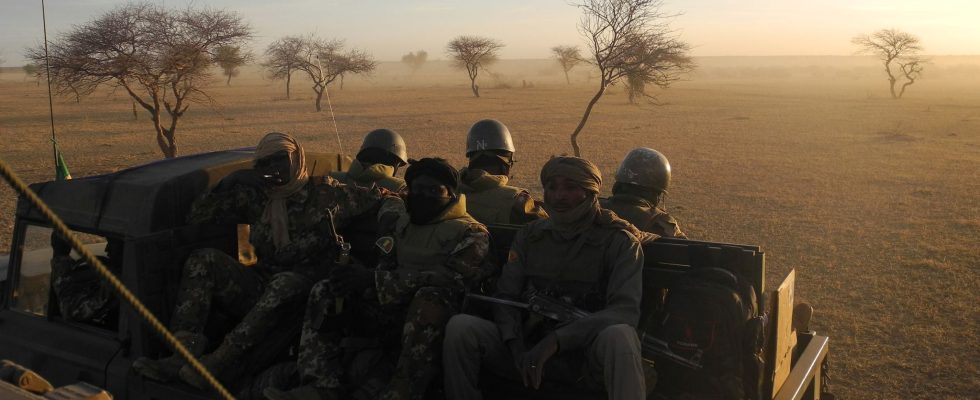The announcement had been expected for several months, it was confirmed this Saturday, December 2. The military regimes of Burkina Faso and Niger have announced their departure from the G5 Sahel, effective since November 29. This political and military cooperation organization, largely financed by the European Union, was created in 2014 with Chad, Mali and Mauritania in order to fight against jihadism in this region.
The two countries have therefore noted the withdrawal “of all the bodies and bodies of the G5 Sahel, including the Joint Force” numbering 5,000 soldiers, specifies their press release published in several local media, including the information site Burkina24. After the withdrawal of Mali in May 2022, these two countries are therefore the next to abandon their participation in the G5 Sahel. A decision which seems to announce the imminent death of this international alliance, symbolizing once again the massive rejection of the French presence in the region.
A G5 Sahel deemed ineffective and exploited
This rupture is first explained by the arrival of soldiers at the head of these three countries. Malian withdrawal from the G5 Sahel took place following a coup d’état in 2020. The logic seems to be the same for Ouagadougou and Niamey: Burkina Faso experienced two putsches in 2022, while Niger is governed by generals since the 2023 putsch.
A rise to power favored by the anger of residents at the inability of their governments to stem jihadist violence. Therefore, Burkina Faso and Niger justify their withdrawal from the G5 Sahel by its ineffectiveness: in their declaration, the two military regimes explain that “the organization struggles to achieve its objectives” and is undermined by “institutional cumbersomeness, from another age.” The joint operations of this force are in fact remained few in number since 2014while the accusations of blunders have multiplied.
Beyond criticism of its functioning, Burkina Faso and Niger also point the finger at European support for the alliance. The press release specifies that they do not wish to “serve foreign interests to the detriment of those of the peoples of the Sahel, [et] even less accept the diktat of any power whatsoever in the name of a misguided and infantilizing partnership”. Upon its withdrawal in 2022, Mali also denounced an organization “instrumentalized by the outside”.
A triple alliance against a backdrop of opposition to France
Behind these vague formulas, we perceive above all a rejection of France, whose three countries obtained independence in 1960. If the previous governments of Niger and Burkina Faso were close to Paris, the coups d’état were based on opposition from increasingly strong population facing the influence of the former colonizer. The days of the G5 Sahel, partly financed and armed by the French state, thus seemed numbered in these territories.
Linked by their rejection of the G5 Sahel and France, these three countries also wish to create an alternative. Even before this withdrawal from the anti-jihadist cooperation organization, the heads of diplomacy of Burkina Faso, Niger and Mali proposed Friday evening the creation of a union of their autonomous states in the form of a confederation. With “the ambition to ultimately achieve a federation” with a common government, specifies the press release relayed by the Burkinabe online media Faso. These regimes had already come together since September to form the Alliance of Sahel States, notably establishing automatic assistance in the event of a jihadist attack on their respective soils.
They are thus putting forward a new model of military defense, intended to be more effective… And do not hesitate, in passing, to muzzle critical voices about their actions. Saturday evening, the Burkinabe government announced the suspension of the French daily The worldin reaction to the publication of an article accusing the regime of waging a “propaganda war” regarding a jihadist attack in Djibo, at the end of November, having killed at least 40 civilians. A “humiliation” contested by the junta, which promised an end to violence when it came to power.
